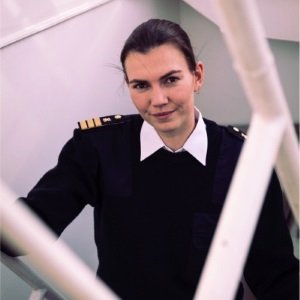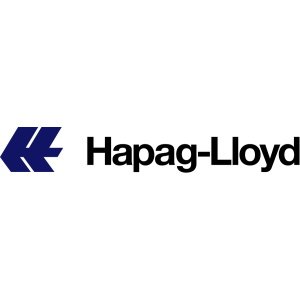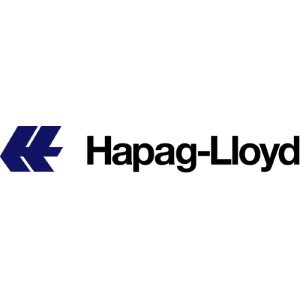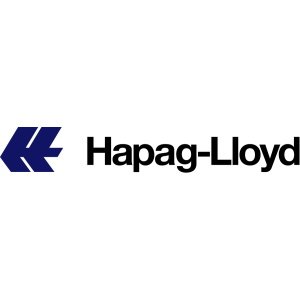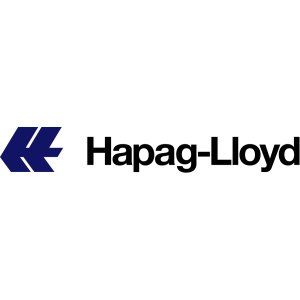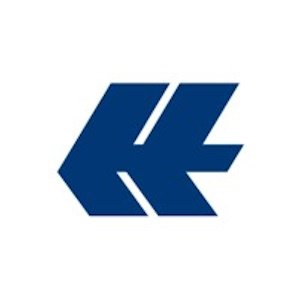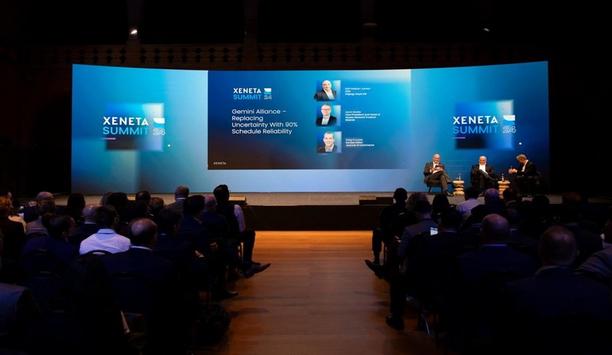HAPAG - LLOYD AG - Experts & Thought Leaders
Latest HAPAG - LLOYD AG news & announcements
The English Commercial Court (the “Court”) has provided helpful clarity on the extent of damages available to a claimant shipowner for the late redelivery of a vessel under a time charter where there is evidence that the owner of the vessel would have been unable to enter into a subsequent charter for the vessel. In such circumstances, only nominal damages will be recoverable, as no actual loss has been suffered. Background Hapag-Lloyd AG (the “Charterers”) entered into two materially identical time charters (the “Charters”) in respect of the MV ‘Skyros’ and the MV ‘Agios Minas’ (the “Vessels”) with Skyros Maritime Corporation and Agios Minas Shipping Company (the “Owners”). By the terms of the Charters, the Vessels were required to be redelivered on 30 May 2021 (in respect of the MV ‘Skyros’) and 31 May 2021 (in respect of the MV ‘Agios Minas’); Prior to the redelivery dates, the Owners entered into two MOAs for the sale of the Vessels to MSC Shipping SA and Maersk A/S, respectively. Under these MOAs, the Owners were precluded from entering into subsequent charters following the expiry of the Charters; Both vessels were subsequently redelivered late by the Charterers, with the MV ‘Skyros’ being about two days late, and the MV ‘Agios Minas’ being about seven days late. At this time, the market rate which would have been offered for the Vessels was considerably higher than the rates in the Charters; As per the Charters, the Charterers continued to pay hire during the period of delay. However, they remained in breach of their obligations under the Charters to re-deliver the Vessels on time. As such, the Owners argued that they were deprived of a more profitable charter opportunity and sought substantial damages, seeking the difference between the rate of charter hire actually paid and the higher market rate at the end of the charter period; and Following two arbitral decisions (both of which contained the same reasons), the Owners were deemed entitled to recover substantial damages, compensation, remuneration or other monetary relief. The Charterers subsequently appealed in Court. Key issues Owners were entitled to claim the difference between the charter rate and the market rate The key issue to be considered by the Court was whether, as a matter of legal principle, the Owners were entitled to claim the difference between the charter rate and the market rate, notwithstanding the fact that they would not have been better off, in monetary terms, if there had been no breach (due to their inability to enter into subsequent charters under the MOAs). The Owners presented three key arguments, based on the principles of quantum meruit, user damages and negotiated damages, all of which were accepted by the arbitrators in their decision. A further set of arguments were also put forth in favour of the doctrine of res inter alios acta, as canvassed in Transfield Shipping Inc v Mercator Shipping Inc (2008) UKHL 48 (“The Achilleas”), which the Owners used to suggest that the MOAs, and consequently the restriction preventing the entry into further fixtures, should be disregarded as irrelevant in the assessment of damages. Decision The Court allowed the Charterers’ appeal, and in doing so, found as follows: Quantum meruit The quantum meruit argument was swiftly rejected on the basis that this principle is one of restitution/unjust enrichment, which can only apply where services are rendered without any agreement as to their renumeration. In this case, the claim was for breach of the redelivery obligations; the hire was earned and paid at the charter rate. Therefore, the agreement for all the services rendered was properly abided by and the Charterers did not receive a service that was outside of the contemplation of the Charters, hence making quantum meruit inapplicable. User damages The Court displayed similar dissatisfaction with the user damages argument The Court displayed similar dissatisfaction for the user damages argument. This principle allows for parties to claim more than nominal damages where their property has been wrongfully used. It was held that whilst the failure to deliver the Vessels on time was wrongful, this did not constitute improper use of property. Further, the Owners had not been deprived of possession of the Vessels, even if the Charterers also had simultaneous use of the Vessels in the sense of being able to issue voyage instructions. It was stated that the applicability of user damages to contract is highly limited. Negotiating damages The third line of arguments from the owners, i.e., negotiating damages, was also deemed inappropriate. Negotiating damages are generally only available where a claimant has been deprived of the economic value of a right which has been breached (for example, the breach of an intellectual property agreement would deprive the claimant of the economic value of a right). The economic value of the right is treated as a valuable asset. The Court agreed with the proposition put forth by leading commentaries that the obligation to make timely redelivery cannot be said to create or protect a valuable asset. In other words, timely redelivery did not provide the Owners with a right of any economic value. Remoteness and the principle of res inter alios acta Owners had made a further and separate view during the arbitration process that the MOAs with the buyers The Owners had made a further and separate argument during the arbitration process that the MOAs with the buyers were res inter alios acta, i.e., the MOAs were too remote to be taken into account in determining the claim for damages. The core disagreement between the parties turned on the issue of whether the doctrine of remoteness can operate to increase, rather than reduce, damages, with the Charterers arguing that remoteness cannot expand recovery to allow an innocent party to recover damages for losses it has not suffered. Owners’ interpretation of the judgement The Owners had first relied on the judgement in The Achilleas, a case in which an owner was held not to be entitled to claim an increase in damages by relying on a subsequent fixture. The Court disagreed with the Owners’ interpretation of the judgement and deemed it to be “wholly unrealistic”. Further, the Court held that The Achilleas had been decided on an orthodox application of the principles of remoteness to prevent an award of damages for loss that was not foreseeable. In doing so, the court in The Achilleas had abided by the usual rules of the compensatory principle, through which subsequent contracts not contemplated by the parties cannot be considered in the calculation of damages. It was deemed inappropriate to suggest that the effects of this analysis would be to allow for recovery of damages by a claimant who has suffered no loss at all. MOAs market opportunities The MOAs could not be ignored for being too remote or unrelated to the case at hand It was ultimately held that the principle of res inter alios acta had little to do with the present case. The MOAs could not be ignored for being too remote or unrelated to the case at hand, as their provisions directly resulted in there being no actual loss suffered. The Court concluded by providing support for the views expressed in various textbooks; where owners have not lost the opportunity to take advantage of the market rate during the period of overrun, there is no scope for substantial compensation of this kind to arise. Importantly, the Court found that because it was the MOAs that prevented the Owners from entering the market, they had suffered no recoverable loss from missed market opportunities. Owners were therefore not entitled to recover substantial damages because of the late redelivery and were only entitled to nominal damages. Key takeaways As a starting point, shipowners should be aware that the default measure of damages is that damages arising from late redelivery are typically calculated as the difference between the charter rate paid by the charterers during the overrun period and the market rate; Shipowners should be cognisant of the possibility that the default measure of damages may only be potentially departed from in the event where Owners are able to demonstrate that there were, in fact, actual losses arising from circumstances where an opportunity to fix the vessel in question at the market rate has been lost; The legal principle of res inter alios acta, which operates to make extraneous contracts irrelevant to the calculation of damages awarded, will only apply in strict circumstances; it is highly unlikely that it will intervene to increase damages awarded by disregarding the actual loss suffered, which remains of paramount importance in assessing quantum; Remoteness operates primarily to reduce damages available, and a reversal of this principle to increase damages instead is likely to be met with judicial scepticism. The principle of remoteness operates primarily to reduce the available damages. It is highly unlikely that the legal principle of res inter alios acta, as per The Achilleas, will apply to increase damages awarded by disregarding the actual loss suffered. An attempt to rely on remoteness in this way is likely to be met with judicial scepticism; Shipowners should be aware that where charterers redeliver late, their ability to claim substantial damages could be limited by the existence of any contractual obligations that prevent entry into further fixtures; and On the other hand, this decision leans in favour of charterers and serves as a useful precedent wherein a shipowners’ claim for damages could be limited if such claim by shipowners is predicated on speculative losses and/or if there are other causative reasons (such as pre-existing contractual obligations) apart from the charterers’ breach preventing the subsequent employment of the vessel.
Watson Farley & Williams advised long-standing client TUI Cruises GmbH on the delivery of the Mein Schiff Relax, the eighth ship in the Mein Schiff series and TUI Cruises’ first to be built at Italy’s Fincantieri shipyard. The Mein Schiff Relax is the first of two InTUItion-class ships being built at Fincantieri for TUI Cruises. The vessel marks a new era for the Mein Schiff experience, setting new standards in terms of comfort, exclusivity and feel-good atmosphere. Its design combines spacious public areas with numerous places to retreat to for maximum relaxation. TUI Cruises’ decarbonisation roadmap WFW advised TUI Cruises on the building contracts, the financing arrangements and the delivery of the ship The Mein Schiff Relax appeals to a very broad target group with its wide range of offers – from single travellers to families. As part of TUI Cruises’ decarbonisation roadmap, the company is committed to using a range of climate-friendly fuels, including biodiesel, biomethanol and bio-LNG, as well as synthetic fuels. Mein Schiff Relax is equipped with a dual-fuel engine and the first liquefied natural gas ship being able to use bio-LNG in the future. WFW advised TUI Cruises on the building contracts, the financing arrangements, and the delivery of the ship. Expertise in tourism and cruise industries TUI Cruises was established in April 2008 as a joint venture between TUI AG and Royal Caribbean Cruises Ltd. Based in Hamburg, the company combines expertise in the tourism and cruise industries. It offers cruises in the upper-contemporary/premium, luxury and expedition market segments through two strong, complementary, award-winning brands: Mein Schiff, specialising in the upper-contemporary/premium segment and Hapag Lloyd Cruises, the only luxury brand in the DACH region operating in both the luxury and expedition segments. Addition of Mein Schiff Relax Italy Associate Sergio Napolitano provided on-the-ground assistance at the delivery in Italy With the addition of Mein Schiff Relax, TUI Cruises’ fleet of 13 vessels, with over 24,000 berths, is one of the youngest in the world. The WFW London Assets and Structured Finance team that advised TUI Cruises was led by Partner Lucy Shtenko working closely with fellow Partner Robert Platt and Senior Associates Katie Shiels and Philip Chope. Italy Associate Sergio Napolitano provided on the ground assistance at the delivery in Italy. Delivery of the next Mein Schiff vessel Lucy commented: “We are pleased to have advised TUI Cruises once again on the delivery of its next Mein Schiff vessel. It is great to see such a beautiful and progressive ship added to the fleet." "The WFW team was delighted to continue to support TUI Cruises with this fleet expansion project which again demonstrates our unrivalled reputation for excellence within the maritime and cruise sectors across our international network”.
The two men heading Hapag-Lloyd and Maersk into the new Gemini Cooperation joined together on stage at the Xeneta Summit in Amsterdam to reinforce their confidence in the new alliance achieving its ambition of 90% service reliability. The Gemini Cooperation, which comprises the two ocean container shipping giants, will begin operating on 1 February 2025, with a new hub and spoke approach of mainliner and transshipment services designed to increase reliability. 90% service reliability Rolf Habben Jansen, CEO of Hapag-Lloyd, and Kenni Skotte, Vice President and Head of Ocean Network Product at Maersk, took part in a panel discussion at the Xeneta Summit in Amsterdam on Thursday to answer questions on how Gemini can achieve its ambition of 90% service reliability when global reliability across all ocean container shipping carriers in the market stands at 53%. Skotte said, “We are confident of the 90% number because we believe we can do it. But I recognize when people look at schedule reliability in the market today it’s hard to imagine. If we sit here again next year, we will have a very different discussion because by then we will have been able to prove that it works.” Use of transshipment networks Gemini Cooperation will cover seven trades and offer 57 services including mainliner and dedicated shuttle services Gemini Cooperation will cover seven trades and offer 57 services including mainliner and dedicated shuttle services. Habben Jansen and Skotte both told the Xeneta Summit that increasing the use of transshipment networks will allow for more stable and reliable services for shippers. Habben Jansen said, “Transshipment services are increasing from 35% to 45% but we are going to do it in a much more structured and planned manner at hubs we control ourselves." Hub operations “Hubs have more capacity than is strictly required and that is very much a choice. We don’t operate hubs to make money, we operate hubs to make the network work. More cranes, more space than one would normally do with multiple terminals we can access." “What gives us confidence is the way the whole system has been designed because it’s very much about being able to isolate delays. Whereas today what we tend to see is a delay of one or two delays snowballs into significant delays and that has a ripple effect.” Covering scenarios The Gemini Cooperation recently confirmed its ships will sail around the Cape of Good Hope in Africa The Gemini Cooperation recently confirmed its ships will sail around the Cape of Good Hope in Africa when it begins operating in February due to ongoing conflict in the Red Sea. Both Skotte and Habben Jansen confirmed this will not impact Gemini’s target of 90% reliability. Habben Jansen said, “In today’s challenging environment, our network can cover both scenarios – whether through the Red Sea passage or around the Cape of Good Hope – ensuring we maintain the same industry-pioneering reliability." Hub-and-spoke model “The Gemini Cooperation is designed in response to the evolving needs of our customers in an increasingly dynamic and volatile industry." “In this context, our hub-and-spoke model allows us to operate a lean network by leveraging central hubs, all while preserving the global coverage our customers have come to rely on.” Data and intelligence platform Skotte added, “We believe our new innovative ocean network will significantly improve schedule reliability to the benefit of our customers and set a new and very high standard in the industry.” Xeneta is the ocean and airfreight data and intelligence platform and the annual summit brings together hundreds of stakeholders from across the industry for two days of keynote speeches and panel discussions on the most important issues facing global supply chains.
